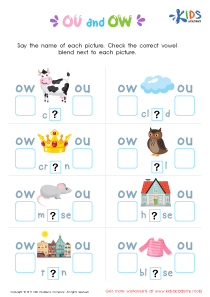Spelling practice Normal Long And Short Vowel Worksheets for Ages 7-9
5 filtered results
-
From - To
Enhance your child's literacy skills with our "Spelling Practice: Normal Long and Short Vowel Worksheets" designed specifically for ages 7-9. These engaging worksheets focus on helping kids master vowel sounds through fun and interactive activities. Children will learn the difference between long and short vowels while practicing their spelling in an enjoyable way. Perfect for classroom or at-home use, these printables promote essential phonetic skills and boost confidence in reading and writing. Our thoughtfully crafted exercises cater to varying skill levels, ensuring every child can succeed. Unlock your child's potential and make learning a joy with our creative spelling worksheets!


Let's Check Long Vowels: Assessment Worksheet
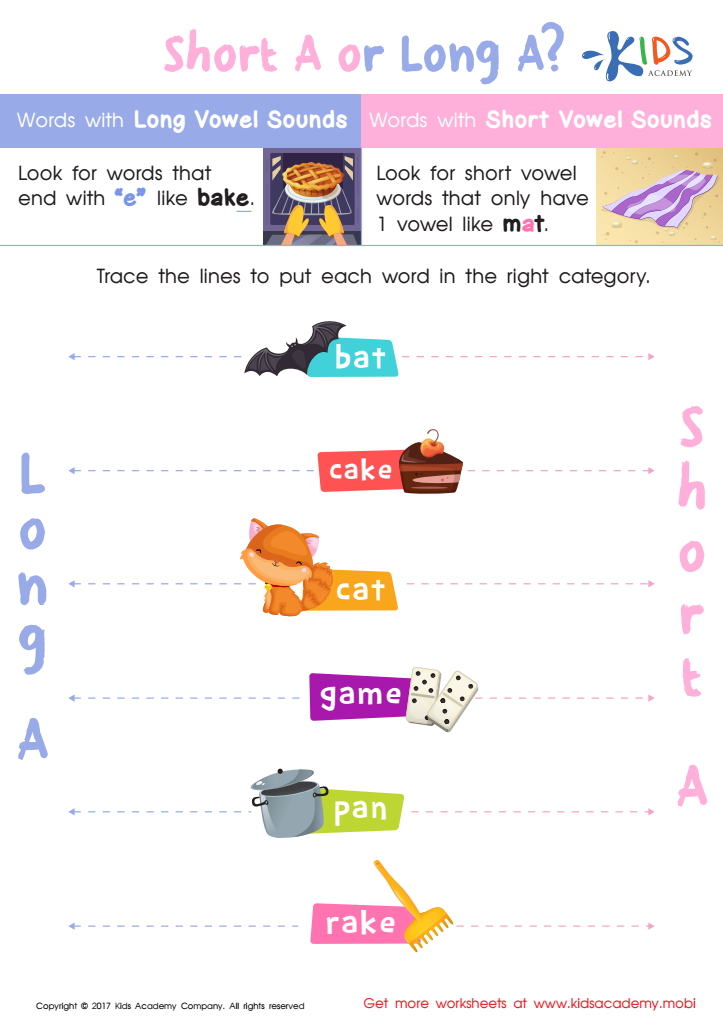

Short /a/ or Long /a/? Worksheet
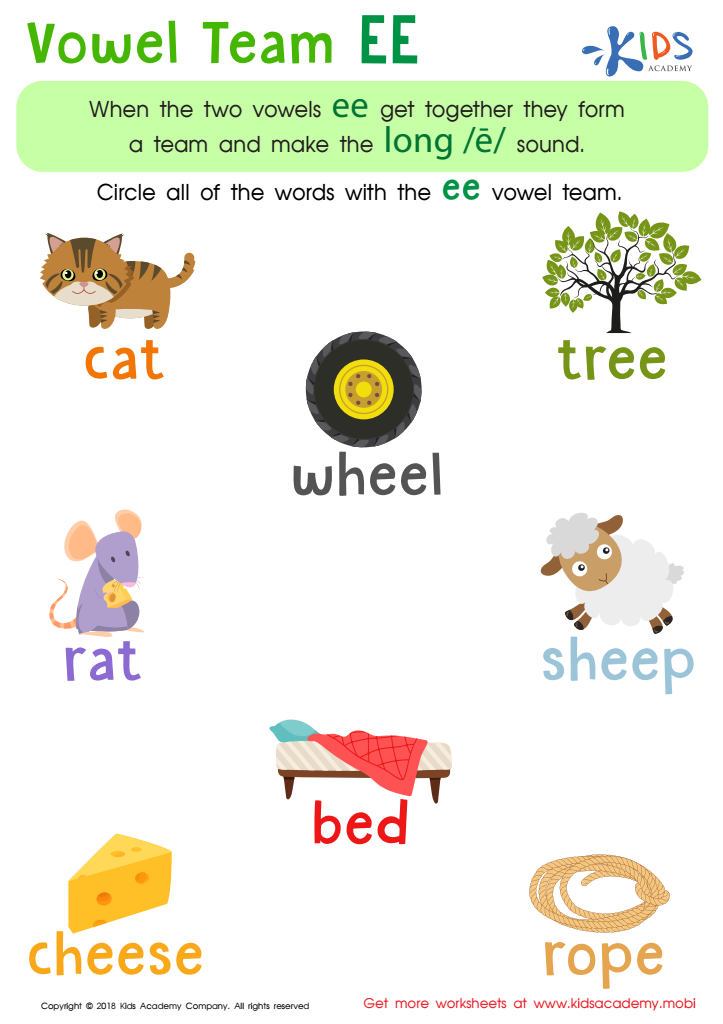

Reading: Vowel Team EE Worksheet
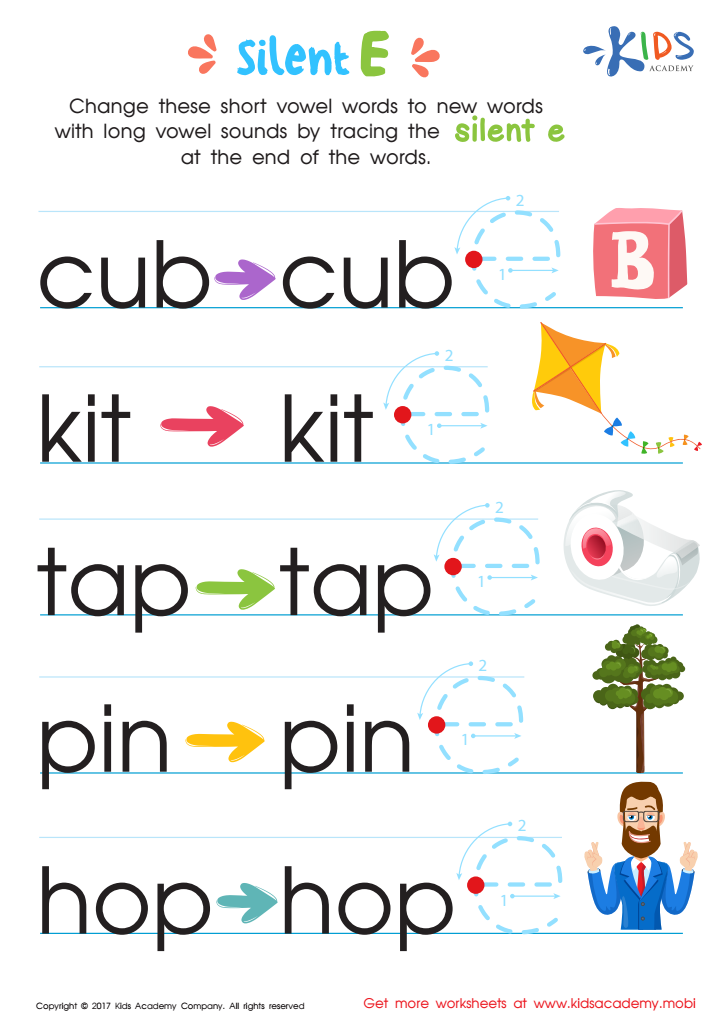

Silent E Words Worksheet
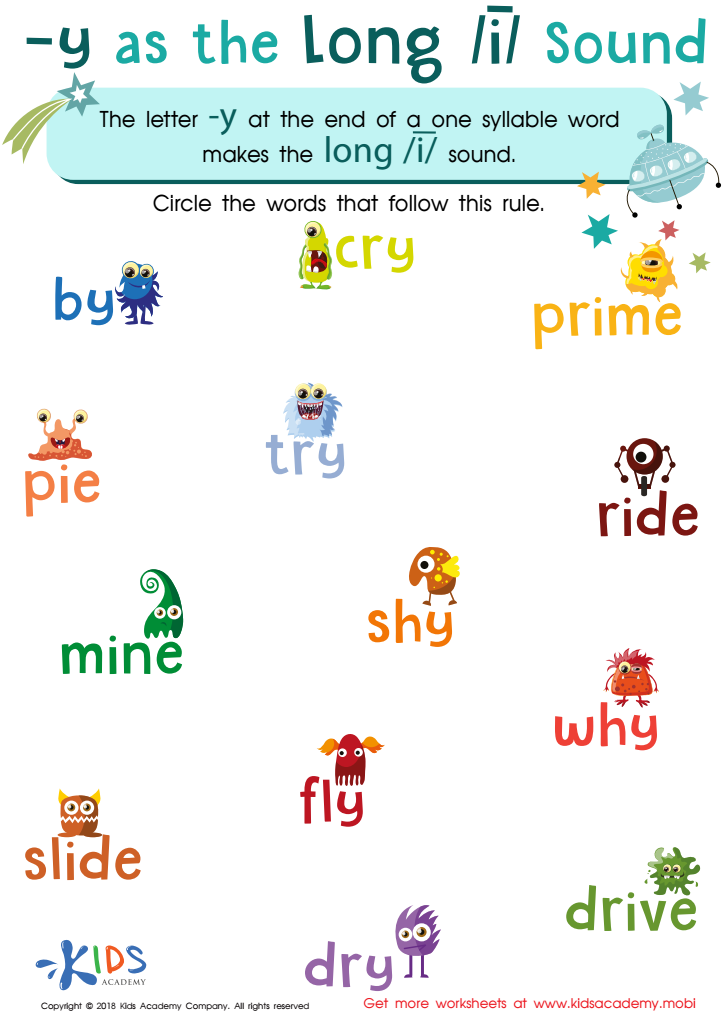

Reading: Y as Long I Worksheet
Parents and teachers should prioritize spelling practice, particularly focusing on normal long and short vowels for children ages 7-9, because phonics serves as the foundation for reading and writing skills. At this age, children are developing their understanding of how sounds relate to letters, which is critical for their literacy development. Mastering spelling with a focus on vowel sounds helps children improve their decoding abilities, enabling them to read more fluently and comprehend text better.
Long and short vowels are essential for avoiding confusion in pronunciation and meaning. A solid grasp of these vowel sounds helps children differentiate between words that may appear similar but have different meanings, improving their communication skills. Engaging in regular spelling practice creates a structured learning environment where children can explore and reinforce their knowledge, fostering their confidence in using language.
Moreover, recognizing the importance of spelling extends beyond academics; it enhances children's writing skills, paving the way for creative expression. By instilling good spelling habits early on, parents and teachers equip children with lifelong skills that contribute to their success in school and beyond, nurturing both cognitive development and self-esteem.
 Assign to My Students
Assign to My Students








